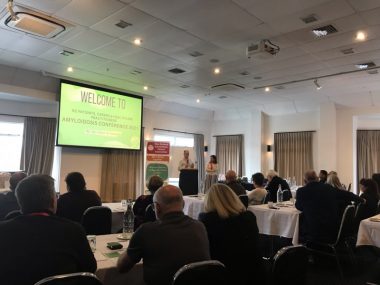Why It’s Important for the Rare Disease Community to Avoid Isolation

By the time this column is published, nearly two weeks will have passed since the kick-off of the two-day New Zealand Patients, Carers & Healthcare Practitioners Amyloidosis Conference. I helped organize this important event, and believe it was especially worthwhile because sufferers are too often misdiagnosed and mistreated, eventually dying from what is deemed an “unknown” condition.
Amyloidosis patients live in a world of hypotheticals and what-ifs. Their grueling experiences may be determined by a doctor’s idea of how the disease will progress and general expectations of how patients should behave to fit in. Because the disease often leads to heart failure and may be simply labeled as such, a correct, timely diagnosis and early medical treatment are critical to patient longevity.
My husband, Aubrey, has hereditary ATTR amyloidosis. We often say that the only good thing about having this inherited Val 47 type is that we have his predecessors’ experiences as a confirmation and guide.
For those who have the nonhereditary form of this disease, diagnosis is usually not as easy. It can take years to find an answer. So when we set up our New Zealand Amyloidosis Patients Association, it was important to us to hold workshops and conferences that teach people about the disease and how to manage it.
Advocating for disease awareness and educating the masses is the first step toward shifting the landscape of treatment. No matter where you live or what type of rare disease you have, if no one has heard of it, chances are you will feel isolated. Having experienced the havoc of the COVID-19 pandemic, we likely all know what it’s like to be isolated.
Throughout the recent conference, it was clear that patients and caregivers were grateful to meet, connect, share experiences, and talk about things that others truly understand. Many people no longer felt alone.
Isolation is dreadful. To feel alone, confined, and abandoned can be discouraging and depressing. The rare disease community must strive to avoid being placed in a separate box and hidden away from more common diseases. Segregation based on the number of people that have a certain condition is unintelligent and unfair. Our society has been impaired by this for too long, and the only way forward is to step up and raise our voices.

The New Zealand Amyloidosis Patients Association Conference was held on June 4-5, 2021. (Photo by Aubrey Christmas)
In his book “The Man Who Was Thursday,” Gilbert K. Chesterton wrote, “… there are no words to express the abyss between isolation and having one ally. It may be conceded to the mathematicians that four is twice two. But two is not twice one; two is two thousand times one.”
I want you to know that no matter what you are presently facing, you are not alone. There are others like you facing similar challenges. Reach out if you haven’t already and add your number to the equation. We are better together.
***
Note: FAP News Today is strictly a news and information website about the disease. It does not provide medical advice, diagnosis, or treatment. This content is not intended to be a substitute for professional medical advice, diagnosis, or treatment. Always seek the advice of your physician or other qualified health provider with any questions you may have regarding a medical condition. Never disregard professional medical advice or delay in seeking it because of something you have read on this website. The opinions expressed in this column are not those of FAP News Today or its parent company, Bionews, and are intended to spark discussion about issues pertaining to familial amyloid polyneuropathy.







Balwinder
It's always good to knowing new things new info about the disease